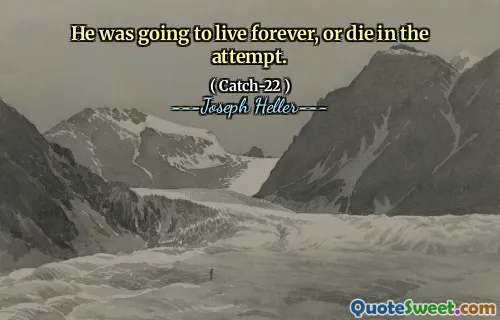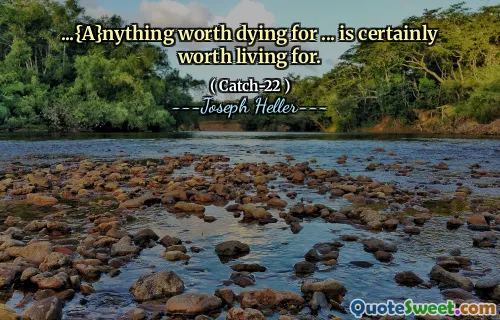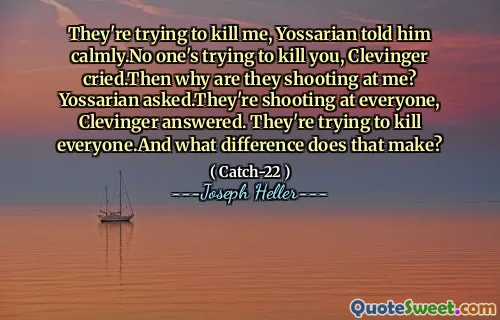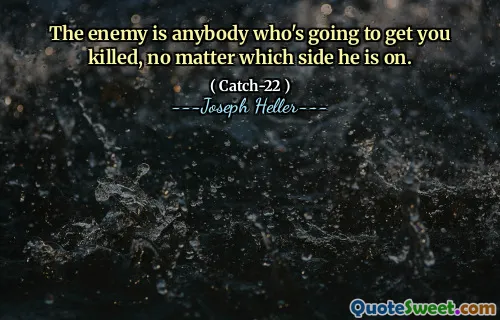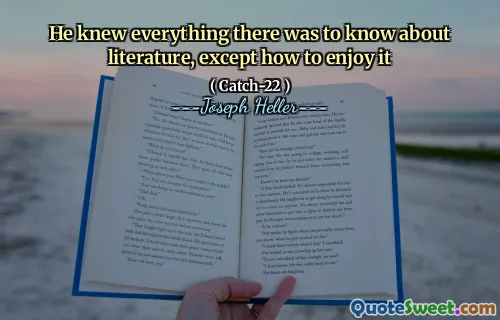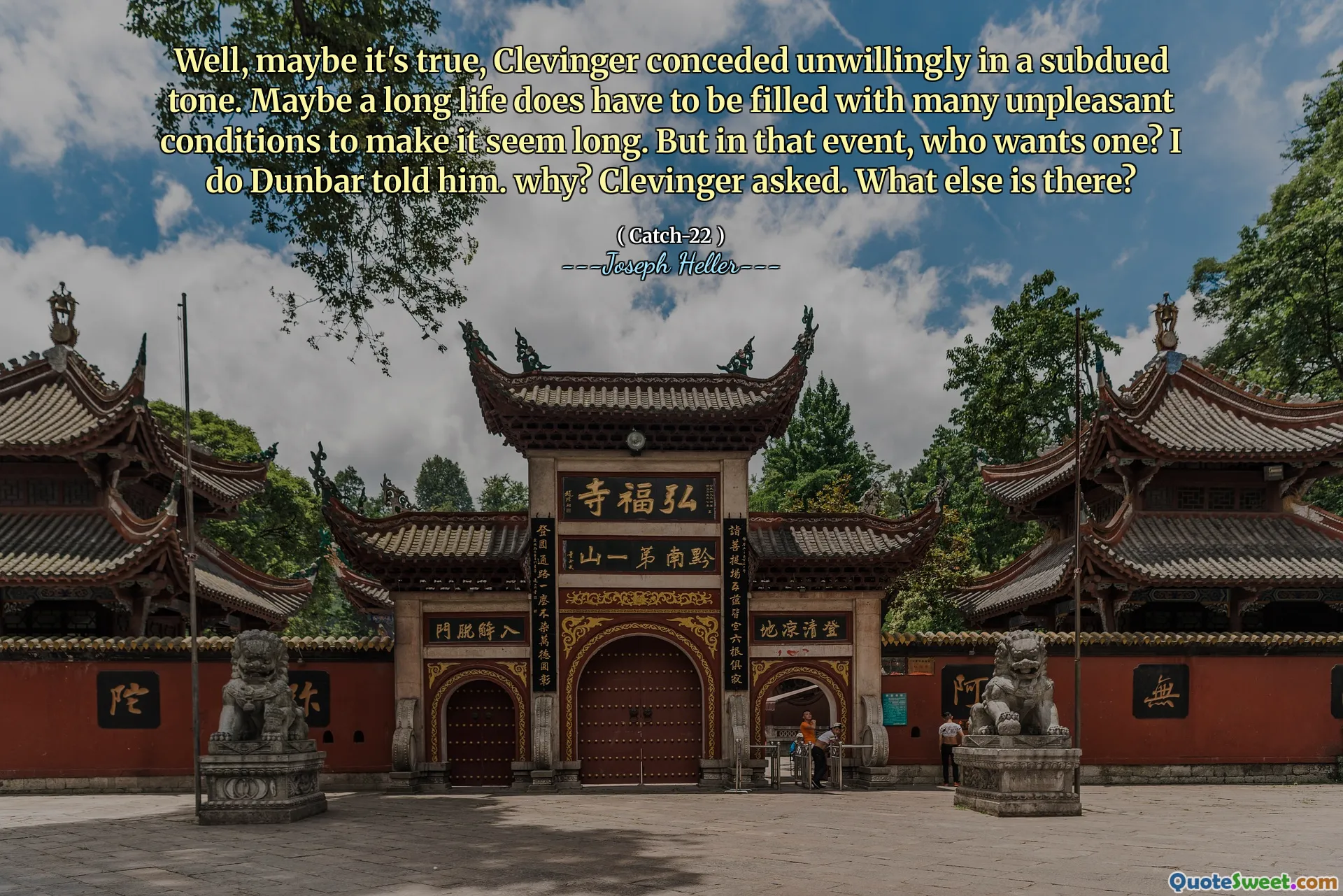
Well, maybe it's true, Clevinger conceded unwillingly in a subdued tone. Maybe a long life does have to be filled with many unpleasant conditions to make it seem long. But in that event, who wants one? I do Dunbar told him. why? Clevinger asked. What else is there?
In Joseph Heller's "Catch-22," a conversation unfolds between Clevinger and Dunbar that reflects a deep philosophical inquiry about life. Clevinger acknowledges the possibility that a lengthy life may often be marred by hardships and unpleasant experiences. He questions the value of such a life, implying that enduring negativity may overshadow the benefits of longevity.
Dunbar, on the other hand, expresses a desire for a long life, prompting Clevinger to probe the reason behind it. Dunbar's response signals a sense of existential reflection, suggesting that even amidst suffering, life retains inherent value and meaning. This exchange highlights the contrasting perspectives on life’s worth when faced with adversity.
